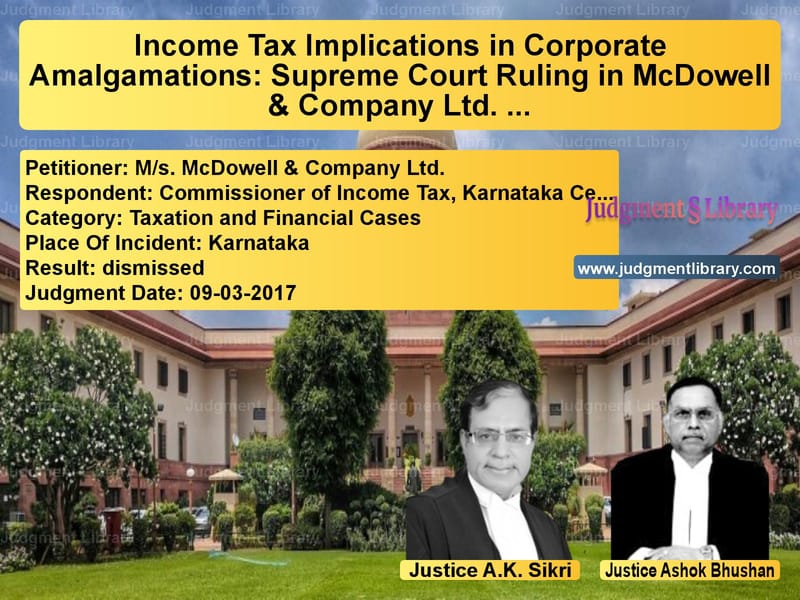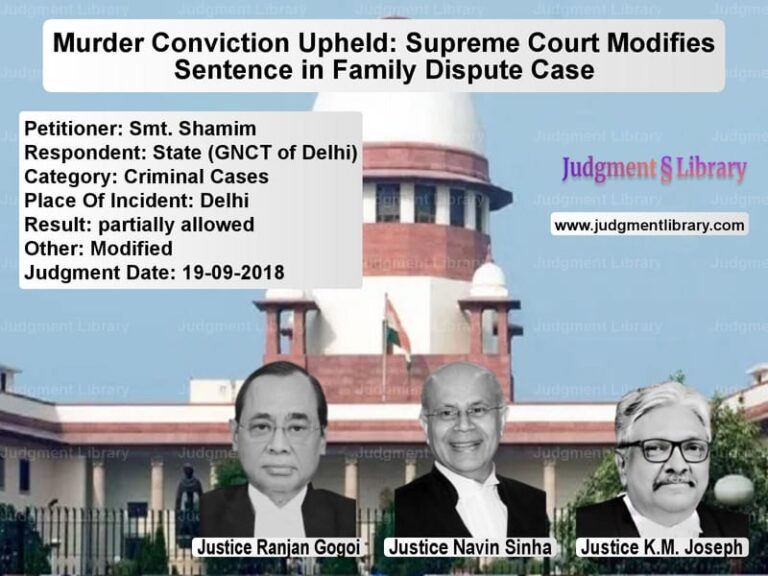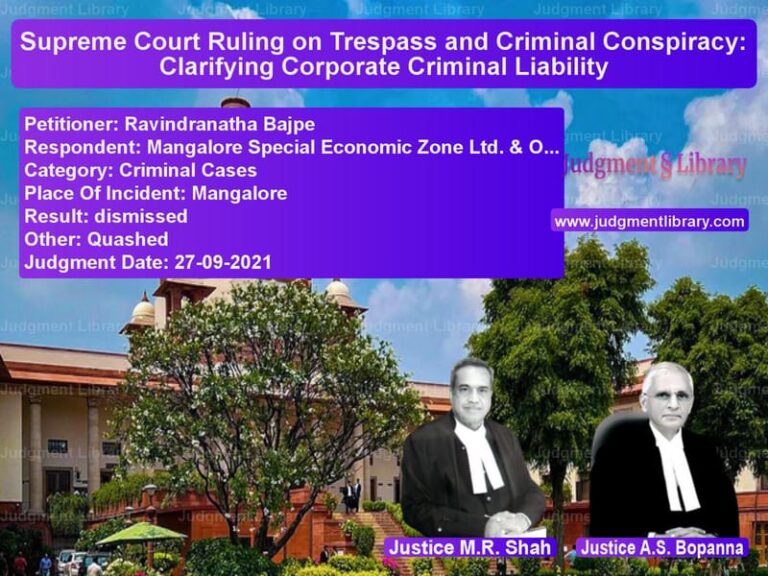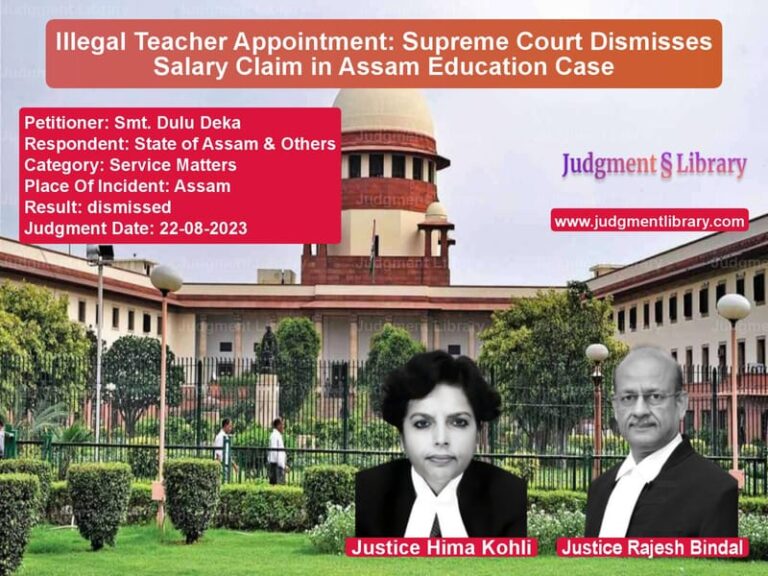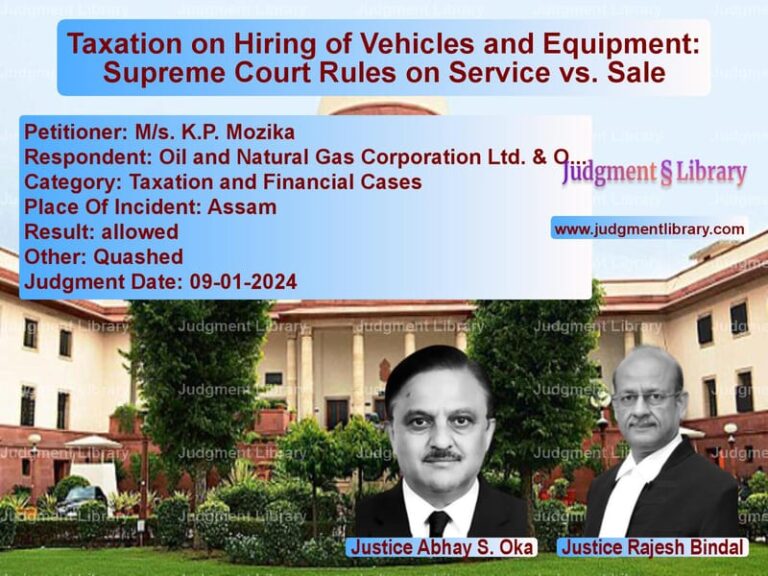Income Tax Implications in Corporate Amalgamations: Supreme Court Ruling in McDowell & Company Ltd. Case
The case of M/s. McDowell & Company Ltd. vs. Commissioner of Income Tax, Karnataka Central, Bangalore is a landmark ruling by the Supreme Court of India concerning corporate taxation, particularly the applicability of Section 72A and Section 41(1) of the Income Tax Act, 1961. The case involved the tax implications of an amalgamation where a sick industrial company was merged with a financially sound company.
Background of the Case
The appellant, McDowell & Company Ltd., had taken over a financially distressed company, Hindustan Polymers Limited (HPL). This amalgamation was approved by the Bombay and Madras High Courts, with the effective date being April 1, 1977. The merger was intended to revive HPL while providing tax relief to McDowell under Section 72A of the Income Tax Act, which allows carry forward and set off of accumulated losses of an amalgamated company.
One of the key issues in this case was the waiver of interest on loans that HPL had taken from financial institutions. The waiver of interest amounted to Rs. 25.02 lakhs, and the tax authorities argued that this should be treated as income under Section 41(1) of the Act. McDowell & Co. contended that since HPL no longer existed as a separate entity, this income should not be attributed to them.
Legal Issues Before the Supreme Court
- Whether the waiver of interest granted to HPL should be treated as income in the hands of McDowell under Section 41(1).
- Whether McDowell, as the successor company, could continue to claim the accumulated losses of HPL under Section 72A while denying the liability on waived interest.
- How the tax treatment of an amalgamated entity should be applied in cases where benefits and liabilities are intertwined.
Arguments by the Petitioner (McDowell & Company Ltd.)
The appellant, through its senior counsel, Mr. Jaideep Gupta, made the following arguments:
- The benefit of Section 72A was legally available to McDowell as per government approval, allowing it to set off accumulated losses of HPL.
- Under Section 41(1), income can only be attributed to the original entity that incurred the liability. Since HPL had ceased to exist post-amalgamation, the waived interest could not be treated as McDowell’s income.
- The decision in Saraswati Industrial Syndicate vs. CIT was cited to argue that an amalgamated company is legally distinct from the original entity, and its past liabilities cannot be automatically transferred.
Arguments by the Respondent (Income Tax Department)
The tax department countered with the following points:
- The waiver of interest amounted to an income benefit under Section 41(1), as HPL had previously claimed it as an expense.
- McDowell had taken over HPL’s assets and liabilities, benefiting from its accumulated losses under Section 72A. Thus, it could not selectively disclaim income while claiming tax relief.
- The High Court of Karnataka had correctly interpreted the law by holding McDowell accountable for HPL’s tax liabilities.
Supreme Court’s Observations
The Supreme Court examined the provisions of Section 41(1) and Section 72A, stating:
“When an assessee is allowed the benefit of accumulated losses of an amalgamated company, the income accrued under Section 41(1) must also be accounted for in order to determine the actual losses available for set off.”
The Court further clarified:
- Waiver of interest is taxable because it was originally claimed as an expense by HPL. The benefit cannot be retained without recognizing the liability.
- McDowell, having accepted the accumulated losses under Section 72A, cannot now claim that HPL’s liabilities do not apply to it.
- The principle from Saraswati Industrial Syndicate does not apply in this case, as McDowell had voluntarily taken over HPL’s financial obligations.
Final Judgment
On March 9, 2017, the Supreme Court ruled:
- The appeal by McDowell & Company Ltd. was dismissed.
- The waiver of interest amounting to Rs. 25.02 lakhs was to be treated as taxable income under Section 41(1).
- The benefits of accumulated losses under Section 72A were allowed, but the waived interest must be set off before determining the net loss.
Legal Implications of the Judgment
This ruling has significant implications for corporate taxation in India:
- Consistency in Tax Treatment: Companies cannot selectively claim tax benefits while avoiding tax liabilities arising from an amalgamated entity.
- Application of Section 41(1): Any benefit derived from a previously claimed expense must be accounted for as income when reversed.
- Clarity on Amalgamations: The decision reinforces that tax obligations are transferred along with benefits in corporate mergers.
Impact on Future Mergers and Amalgamations
This judgment sets a crucial precedent for companies undergoing mergers:
- Companies must assess all financial liabilities before opting for tax benefits under Section 72A.
- Legal compliance in tax filings must consider both advantages and obligations.
- Future mergers must be structured in a way that accounts for all potential tax liabilities.
Conclusion
The Supreme Court’s decision in McDowell & Company Ltd. vs. Commissioner of Income Tax is a landmark ruling that strengthens tax compliance in corporate amalgamations. By ensuring that tax benefits and liabilities are treated consistently, the judgment upholds the integrity of India’s taxation system and prevents selective tax avoidance.
Don’t miss out on the full details! Download the complete judgment in PDF format below and gain valuable insights instantly!
Download Judgment: Ms. McDowell & Comp vs Commissioner of Inco Supreme Court of India Judgment Dated 09-03-2017.pdf
Direct Downlaod Judgment: Direct downlaod this Judgment
See all petitions in Income Tax Disputes
See all petitions in Tax Evasion Cases
See all petitions in Banking Regulations
See all petitions in Judgment by A.K. Sikri
See all petitions in Judgment by Ashok Bhushan
See all petitions in dismissed
See all petitions in supreme court of India judgments March 2017
See all petitions in 2017 judgments
See all posts in Taxation and Financial Cases Category
See all allowed petitions in Taxation and Financial Cases Category
See all Dismissed petitions in Taxation and Financial Cases Category
See all partially allowed petitions in Taxation and Financial Cases Category

